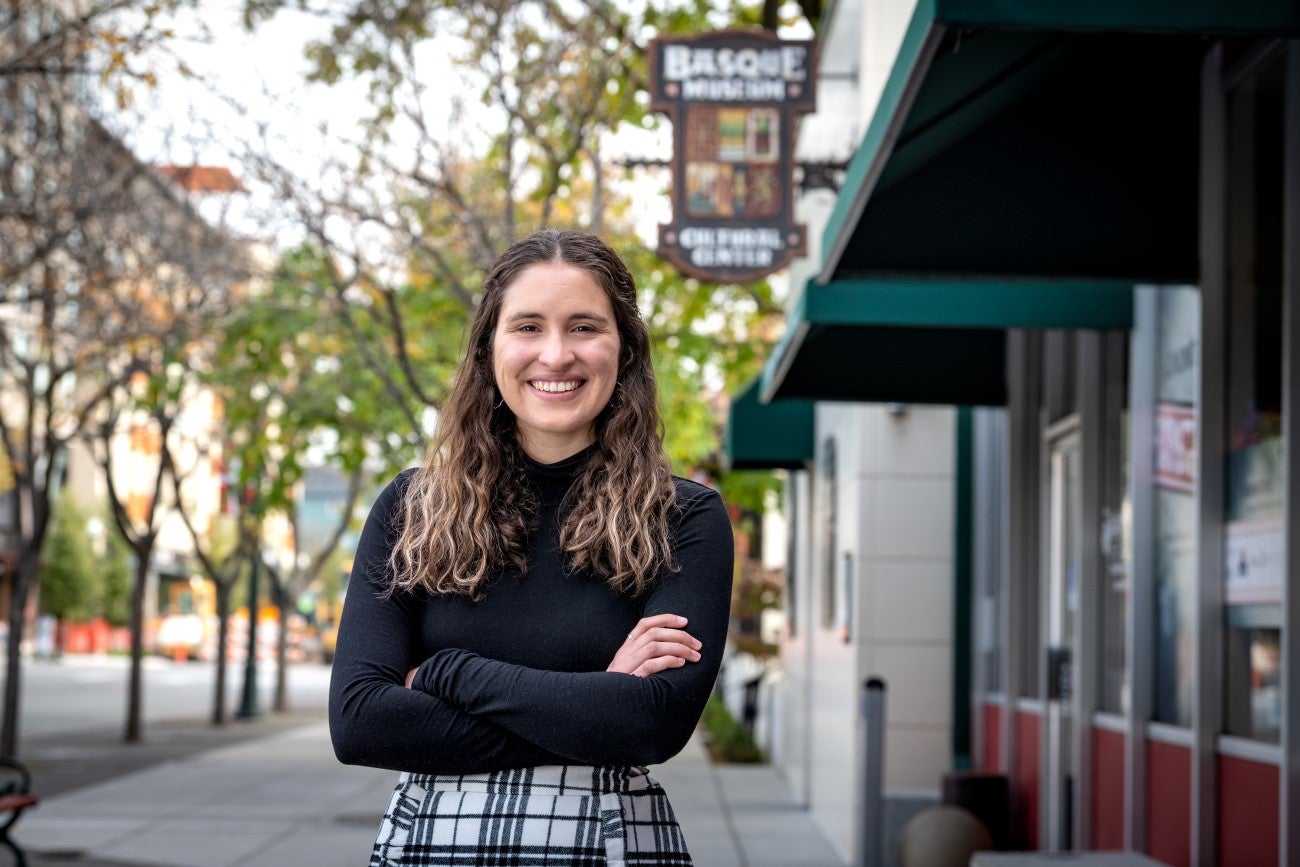
Amaya Herrera, a student with Basque roots, is pursuing a Master of Arts in History with an emphasis in public history at Boise State. She balances academics with her professional life as a curator. She grew up in Winnemucca, Nevada, and earned a degree in history with minors in Basque and ethnic studies from the University of Nevada, Reno. The faculty attracted her to Boise State for her master’s studies, as did the city of Boise itself, “the hub of Basque culture in the United States,” she said.
Q. Tell us about your work at the museum.
A. I oversee the donations that come into the museum and help decide whether we’ll accept items into our collection. If we do accept them, I oversee the accession and cataloging process. I also work with the team here to create new exhibits. That could be using our own collections or working with other museums. One example is our current exhibit from a museum in the Basque Country about Ernest Hemingway and his time there (on display until fall 2024).
Q. You’re around wonderful artifacts all the time. Do you have a favorite?
A. I might be a bit biased. For my master’s project, I’m studying women’s role in Basque dance in the United States and how they helped keep the culture alive through dance. We have journals that dancers brought back from a trip to the Basque Country in the 1960s. When they came home, they created the Oinkari Basque Dancers (a well-known Boise group of which Herrera is a member). Their trip jump-started Basque dancing in the United States. It’s exciting to see the legacy that those few handwritten pages started.
Q. What’s a recent project you’ve worked on?
A. We recently got a collection of oral history interviews that were conducted by the Basque government in the early 2000s for a project called Urazandi (which roughly translates to ‘from overseas’). Researcher Argitxu Camus Etchecopar interviewed people about the creation of the North American Basque Organizations, Inc., which oversees all the Basque clubs in the United States. Etchecopar recently donated those interviews to us, and we’re working on digitizing them and getting releases from the interviewees or their families. I like reaching out to the families, making those connections. I want them to know that we care about their history.
Q. What advice would you give a fellow student who wants to pursue museum work?
A. Don’t be afraid to put yourself out there. For example, I had originally applied for another job at the Basque Museum. Professor Bob Reinhardt had encouraged me to apply, just to get my name out there. I didn’t get that first job. A few months later, the museum’s executive director called me to tell me about the job I have now. It just all came together because I did reach out and apply for that first job. So, I would tell people, don’t be scared to go out and search for opportunities.